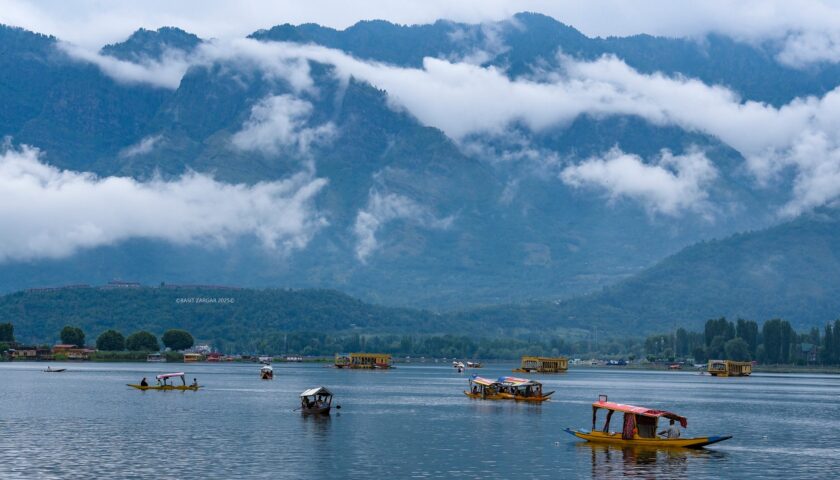A persistent effort is being made to turn Kashmir from a political problem to that of an ideological conflict
Firdous Syed
First of all, a bit of explanation is required here. There is very little that divides a so-called traitor here, from that of a perceived patriot—loyal with the cause. Therefore, finally we should come to realize that everyone of us in Kashmir is, only, the worst victim of a most appalling situation. Yet in case we still need to hold responsible, something or someone, for our miseries; it has to be occupation only.
Kohima, Nagaland, few days ago, was burned down to ashes, yes literally. Even Chief Minister T R Zeilang’s house was not spared. And before that, during Jallikattu agitation, protestors at the Marina Beach in Chennai eventually turned violent; vehicles were burned and petrol bombs were hurled on police station. We were reminded of, quite naturally, Mehbooba Mufti’s combative press conference along with Rajnath Singh. For any criticism of the deep oppression unleashed here, we are often subjected to invectives like anti nationals and for the worst, Pak mercenaries. Will they also dare to label or ridicule Shekhar Gupta, the renowned Indian journalist, for his timely tweet: “Tough question, but needs to be asked: a police station/vehicles are burnt in the heart of Chennai, a metro. Where are the pellet guns?” Crowds hurling petrol bombs at the Marina Beach or rumbling protesters, burning down government buildings, one after another in Kohima, had not gone to fetch milk or for that matter, sugar candies. They had more serious a business at hand. Not merely a usual protest, it was a near rebellion, that too a violent one. At least in case of Kohima, there seems to be no ambiguity about the nature of the unrest. Still why the most brutal tool of state oppression, the infamous pellet gun was missing from the scene, at both the places Chennai and Kohima? Doesn’t that make a difference rather a stark one between a serf and a citizen? A protestor on rampage can burn markets in Haryana, even torch homes. And most horribly he can even commit a worst crime against humanity, a gang rape. He still is a citizen. Here in Kashmir we are not allowed to express ourselves, even peacefully. Here funeral processions too are dispersed with bullets and pellets. A call for demilitarisation is deemed as an anti national act, obviously. Here, however, the demand for repeal of most draconian law even by Indian standards is ridiculed as Pakistan inspired.
Omar Abdullah had to face the music of his own military advisor, the then core commander, on the issue of AFSPA. That’s why we are familiar with a pitting condition, how little powers a chief could yield here? So there is no reason for us to decry a present or a former chief minister. We may, however, pity for the deplorable conditions, in pursuit of power, a chief minister, finds himself or herself, in. Can any chief minster here behave like a Mamata Banerjee? Even a hint of rebellious steak is enough to be castigated as anti national. See how Mufti Sayeed was derided as anti India, even within few days of assuming the office, for the last time in his life.
So we are very much aware of the powers of any chief minister in Kashmir. Therefore hardly anyone was surprised for the bizarre action of the Speaker of the Assembly. Whether he had expunged the remarks of the chief minister, the leader of the house or not, is simply an academic question. As a matter of fact Speaker did expunge the remarks of chief minster regarding article 370. Afterwards as a second thought he backtracked, seemingly to save chief minister from further embarrassment.
Chief Minister had crossed the Lakshman Rekha. She describing the demand of abrogation of 370 as anti nation was almost received as blasphemy. For that matter it was out of question for her alliance partner BJP to digest the censure silently. Campaign for the abrogation of 370 is spearheaded by RSS the fountainhead of Sangh Parivar. And RSS has emerged as the sole custodian of Indian nationhood. But let’s be fair with the facts. It’s not RSS and its allied organisations only those are at the forefront of abrogation 370 campaign. Article 370 of Indian constitution has been a real thorn in India’s body politics. That’s why the article 370 now stands reduced to a mere shell.
Ostensibly, now the perpetrations are underway for the removal of that shell also. If they are so keen to remove the pretensions they are free to do it. The consequences of such an—occupation reinforcing— act are going to be disastrous, however. While article 370 fully failed to guard the political identity of Kashmir, yet the hopes are still alive for a negotiated settlement of the dispute. In a limited fashion article 370 do provides some basis for an amicable moreover peaceful resolution of Kashmir problem. Removal of article 370 will also be triggering a process of Kashmir’s cultural assimilation into fast emerging Hindu India. It will confirm the long held suspicions that New Delhi has never been comfortable with the Muslim majority character of Kashmir. Even when political rights are being denied, Kashmir continues to resist the reign of suppression. Still an attempt is being made to destroy the cultural identity of Kashmir, will that not be prompting Kashmir to get prepared to wage a war of existence. The ham-handed polices are not only destroying any hope of peace. But a persistent effort is being made to turn Kashmir from being a political problem to that of an ideological conflict.



